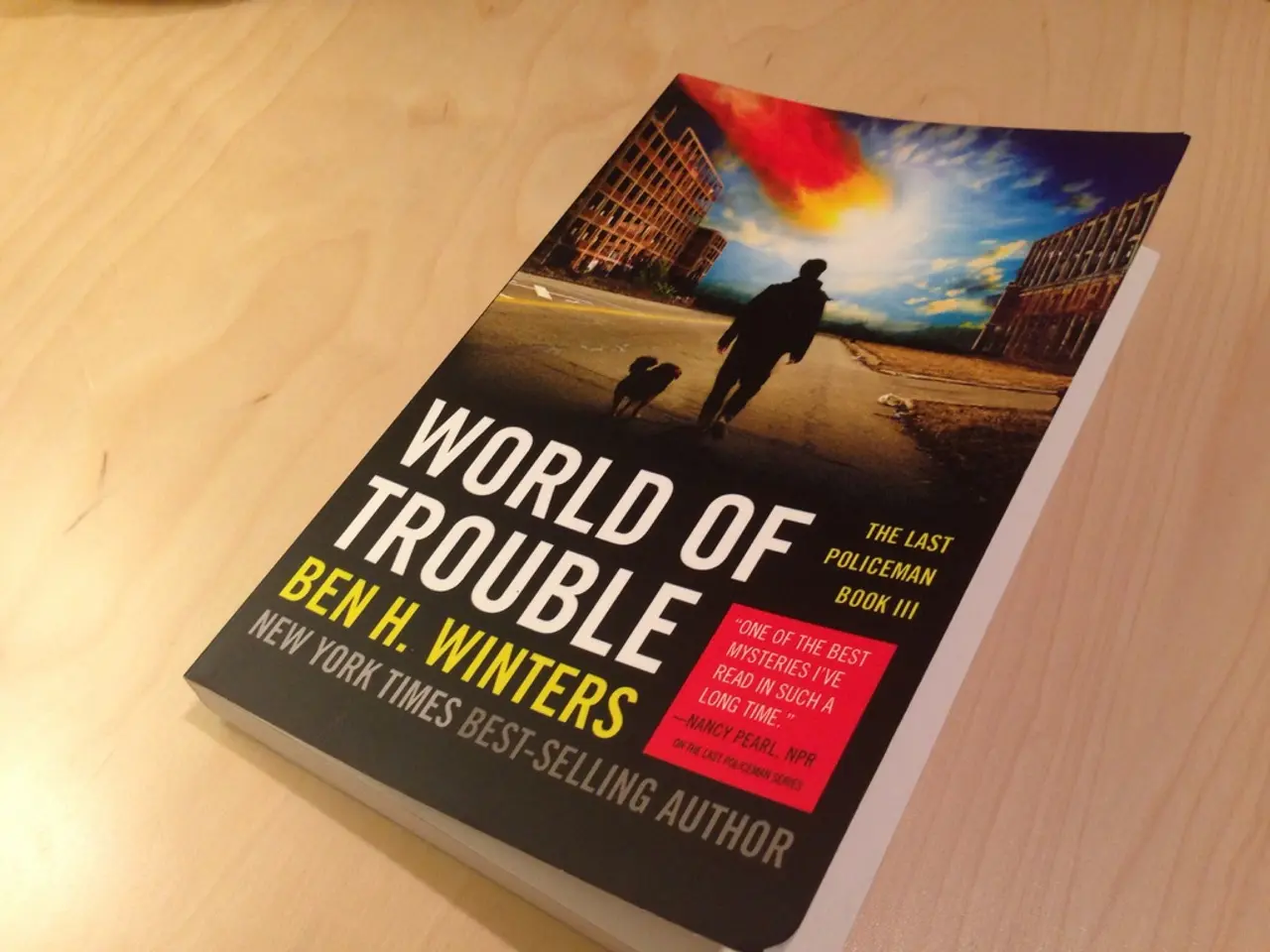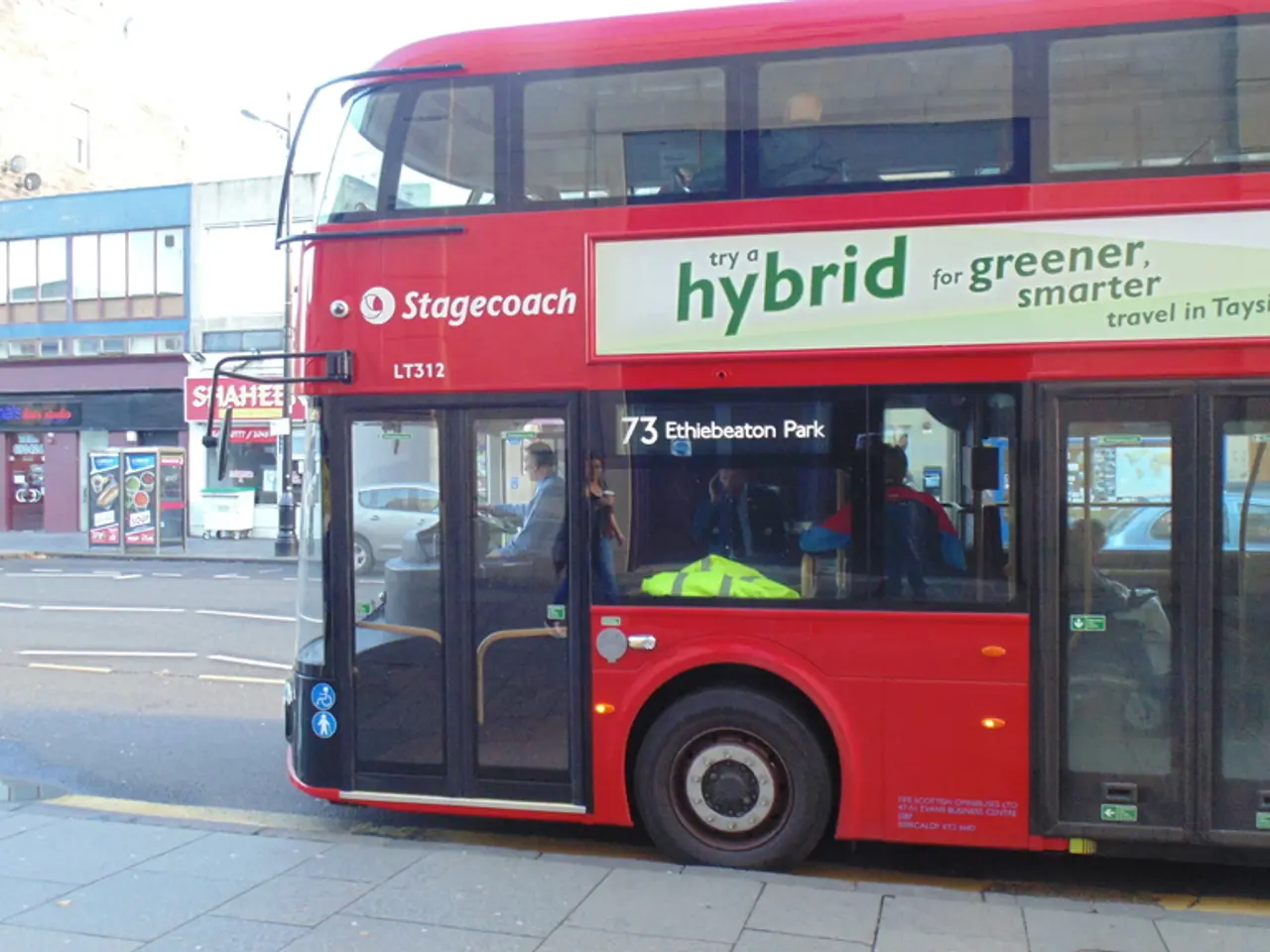Italian migrant safety status challenged by EU court
Italy's fast-track deportation policy for migrants, which aims to swiftly return individuals to countries deemed safe, has been under the spotlight recently. The European Court of Justice (ECJ) in Luxembourg has ruled that while the policy does not violate EU law, the list of safe countries must be open to legal challenge [1][4].
The ruling came following a case involving two Bangladeshi nationals who were taken to a detention center in Albania by the Italian navy. Their asylum claim was given a speedy assessment and rejected [2]. However, the Rome District Court will have the final say in determining whether the fast-track process was correctly applied for the two Bangladeshi nationals [7].
The ECJ emphasized the importance of migrant access to judicial procedures to contest these decisions [1]. This ruling limits Italy's unilateral authority to quickly deport migrants without procedural safeguards and is part of broader EU legal oversight ensuring migrants' rights are respected in asylum procedures [1][4].
Italy can fast-track the deportation of migrants to designated "safe" countries only if the designation of those countries as safe is subject to judicial scrutiny, allowing migrants to challenge their asylum decisions before deportation [3]. A state can only be designated as a safe country of origin if it offers adequate protection to the entire population, including minorities [5].
The sources of information on which such a designation is based must be sufficiently accessible, both for the applicant and for the court or tribunal having jurisdiction [6]. Italian Prime Minister Giorgia Meloni criticized the ECJ's ruling on the classification of safe countries of origin, stating that it weakens the policy to combat illegal mass immigration and to protect national borders [8].
The fast-track process and detaining migrants at facilities in Albania were introduced by Meloni's government as a means to curb the number of migrants entering the country [9]. However, a non-governmental delegation observing the process in Albania claims it illegally deprives migrants of assistance with asylum claims [10].
This ruling is not the first time Italian courts have questioned the fast-track policy. Previously, Italian courts ruled that migrants from Bangladesh and Egypt could not be immediately returned due to safety concerns [11]. Several cases regarding these policies have been referred to the EU's top court in Luxembourg for clarification [12].
In conclusion, the ECJ's ruling underscores the importance of upholding migrants' rights in asylum procedures. The designation of safe countries is not absolute and must be subject to independent judicial review, ensuring migrants can legally challenge their asylum rejection and the safety designation [1][4]. This ruling marks a significant step towards ensuring fair and safe asylum procedures within the EU.
References: [1] European Court of Justice ruling, https://curia.europa.eu/jcms/upload/docs/application/pdf/2023-03/cp230036en.pdf [2] Asylum claim of the two Bangladeshi nationals rejected, https://www.reuters.com/world/europe/italy-rejects-asylum-claims-two-bangladeshi-migrants-2023-03-01/ [3] EU's top court ruling, https://www.reuters.com/world/europe/italy-can-fast-track-deportations-to-safe-countries-but-only-with-judicial-scrutiny-2023-03-01/ [4] EU Justice Commissioner's statement, https://ec.europa.eu/commission/presscorner/detail/en/IP_23_2508 [5] A state can only be designated as a safe country of origin if it offers adequate protection to the entire population, including minorities, https://www.reuters.com/world/europe/italy-can-fast-track-deportations-to-safe-countries-but-only-with-judicial-scrutiny-2023-03-01/ [6] The sources of information on which such a designation is based must be sufficiently accessible, both for the applicant and for the court or tribunal having jurisdiction, according to the EU's top court, https://www.reuters.com/world/europe/italy-can-fast-track-deportations-to-safe-countries-but-only-with-judicial-scrutiny-2023-03-01/ [7] The Rome District Court will have the final say in determining whether the fast-track process was correctly applied for the two Bangladeshi nationals, https://www.reuters.com/world/europe/italy-can-fast-track-deportations-to-safe-countries-but-only-with-judicial-scrutiny-2023-03-01/ [8] Italian Prime Minister Giorgia Meloni criticized the ECJ's ruling on the classification of safe countries of origin, https://www.reuters.com/world/europe/italy-can-fast-track-deportations-to-safe-countries-but-only-with-judicial-scrutiny-2023-03-01/ [9] The fast-track process and detaining migrants at facilities in Albania were introduced by Meloni's government as a means to curb the number of migrants entering the country, https://www.reuters.com/world/europe/italy-can-fast-track-deportations-to-safe-countries-but-only-with-judicial-scrutiny-2023-03-01/ [10] A non-governmental delegation observing the process in Albania claims it illegally deprives migrants of assistance with asylum claims, https://www.reuters.com/world/europe/italy-can-fast-track-deportations-to-safe-countries-but-only-with-judicial-scrutiny-2023-03-01/ [11] Italian courts previously ruled that migrants from Bangladesh and Egypt could not be immediately returned due to safety concerns, https://www.reuters.com/world/europe/italy-can-fast-track-deportations-to-safe-countries-but-only-with-judicial-scrutiny-2023-03-01/ [12] Several cases regarding these policies have been referred to the EU's top court in Luxembourg for clarification, https://www.reuters.com/world/europe/italy-can-fast-track-deportations-to-safe-countries-but-only-with-judicial-scrutiny-2023-03-01/
- The European Court of Justice (ECJ) ruling, in which Italy's fast-track deportation policy was challenged, is a significant victory for media coverage on general-news topics such as migration, politics, and policy-and-legislation.
- The ECJ's decision to emphasize the importance of judicial scrutiny in the designation of safe countries has broad implications for Europe's government policies towards migrants, leading to increased public discourse and debate within politics and media circles.
- The ongoing court cases and scrutiny of Italy's fast-track deportation policy by the European Court of Justice will continue to be closely followed by European government officials, as well as journalists and advocacy groups concerned with human rights and migration issues, contributing to the ongoing dialogue in media regarding these crucial policy matters.






